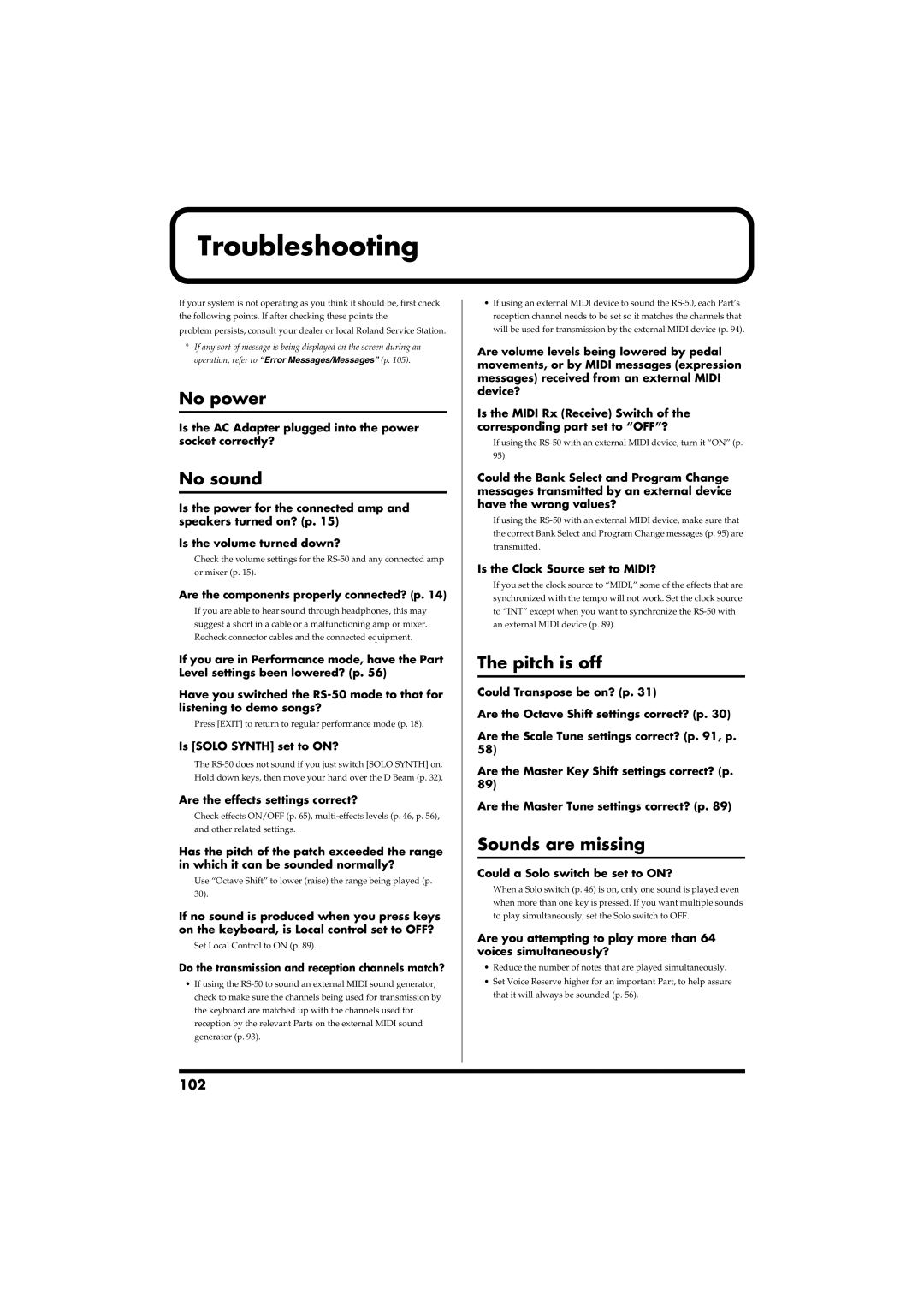
Troubleshooting
If your system is not operating as you think it should be, first check the following points. If after checking these points the
problem persists, consult your dealer or local Roland Service Station.
*If any sort of message is being displayed on the screen during an operation, refer to “Error Messages/Messages” (p. 105).
No power
Is the AC Adapter plugged into the power socket correctly?
No sound
Is the power for the connected amp and speakers turned on? (p. 15)
Is the volume turned down?
Check the volume settings for the
or mixer (p. 15).
Are the components properly connected? (p. 14)
If you are able to hear sound through headphones, this may suggest a short in a cable or a malfunctioning amp or mixer. Recheck connector cables and the connected equipment.
If you are in Performance mode, have the Part Level settings been lowered? (p. 56)
Have you switched the
Press [EXIT] to return to regular performance mode (p. 18).
Is [SOLO SYNTH] set to ON?
The
Are the effects settings correct?
Check effects ON/OFF (p. 65),
and other related settings.
Has the pitch of the patch exceeded the range in which it can be sounded normally?
Use “Octave Shift” to lower (raise) the range being played (p.
30).
If no sound is produced when you press keys on the keyboard, is Local control set to OFF?
Set Local Control to ON (p. 89).
Do the transmission and reception channels match?
•If using the
•If using an external MIDI device to sound the
Are volume levels being lowered by pedal movements, or by MIDI messages (expression messages) received from an external MIDI device?
Is the MIDI Rx (Receive) Switch of the corresponding part set to “OFF”?
If using the
95).
Could the Bank Select and Program Change messages transmitted by an external device have the wrong values?
If using the
Is the Clock Source set to MIDI?
If you set the clock source to “MIDI,” some of the effects that are synchronized with the tempo will not work. Set the clock source to “INT” except when you want to synchronize the
The pitch is off
Could Transpose be on? (p. 31)
Are the Octave Shift settings correct? (p. 30)
Are the Scale Tune settings correct? (p. 91, p. 58)
Are the Master Key Shift settings correct? (p. 89)
Are the Master Tune settings correct? (p. 89)
Sounds are missing
Could a Solo switch be set to ON?
When a Solo switch (p. 46) is on, only one sound is played even when more than one key is pressed. If you want multiple sounds to play simultaneously, set the Solo switch to OFF.
Are you attempting to play more than 64 voices simultaneously?
•Reduce the number of notes that are played simultaneously.
•Set Voice Reserve higher for an important Part, to help assure that it will always be sounded (p. 56).
102
